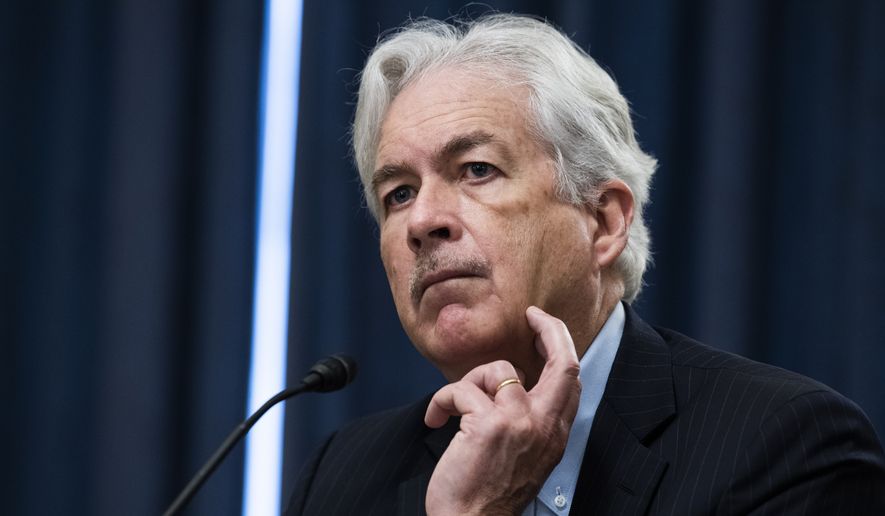Sen. Ted Cruz has held up President Biden’s nomination of William Burns for director of the Central Intelligence Agency until the administration acts tougher to stop a liquid natural gas pipeline from Russia to Germany.
The Texas Republican said the hold was necessary because Mr. Biden is not doing enough to prevent the completion of the Nord Stream 2 pipeline, which threatens to make the European Union more dependent on Russian energy.
“I’ll release my hold when the Biden [administration] meets its legal obligation to report and sanction the ships and companies building [Russian President Vladimir] Putin’s pipeline,” Mr. Cruz said when announcing the hold.
Intelligence Committee Chairman Mark Warner, Virginia Democrat, blasted Mr. Cruz’s efforts on Monday, saying the “country needs a Senate-confirmed CIA director.”
“Ambassador Burns’ nomination came out of the Intelligence Committee with unanimous bipartisan support and there is no rational reason to delay his confirmation,” Mr. Warner told The Washington Times.
Stopping Nord Stream 2, which is nearly 90% complete, was a top geopolitical priority of former President Trump. Starting in 2019, Mr. Trump upped sanctions on companies involved and prodded Germany to scuttle the deal.
Mr. Biden has kept the sanctions in place but has not escalated them, as Russia hawks had hoped. Mr. Biden called the pipeline a “bad deal for Europe” but made restoring America’s relationship with Germany a larger priority.
The White House did not respond to requests for comment about Mr. Cruz’s hold on Mr. Burns.
Mr. Cruz’s dramatic move highlights the fierce opposition to the pipeline among U.S. conservatives, who warn of Moscow’s creeping influence in Western Europe.
Nord Stream 2 has long been criticized for posing an energy security risk to the EU. Russia hawks fear reliance on Mr. Putin’s natural gas will undermine the influence of the U.S. and NATO, some of whose members such as Germany, Italy and Spain already rely on imports to meet more than 50% of their energy needs.
James Carafano, the director of the Douglas and Sarah Allison Center for Foreign Policy Studies at the Heritage Foundation, described the pipeline as an economic weapon.
“Putin is always looking for ways to divide NATO interests,” Mr. Carafano said. “Energy infrastructure goes hand in hand with national security … You can’t fight without energy.”
The pipeline also would undercut U.S. energy companies that are a major exporter of liquefied natural gas. More than 35% of all U.S. LNG exports in 2019 went to the European Union, according to the European Commission.
“The reality is that there is plenty of natural gas out there and there are plenty of ways to get natural gas,” Mr. Carafano said. “Europe can have a lot more natural gas options and they don’t need to be dependent on Russia.”
It is not clear how long Mr. Cruz will be able to block the nomination. Under Senate rules, it takes 60 votes to overturn a hold, which would require 10 Republicans to join with all the chamber’s Democrats.
To date, Mr. Burns has received support from at least eight Senate Republicans, those who voted to move his confirmation forward in the intelligence committee.
• Haris Alic can be reached at halic@washingtontimes.com.




Please read our comment policy before commenting.